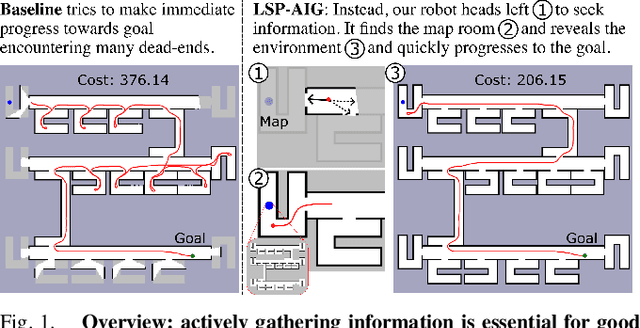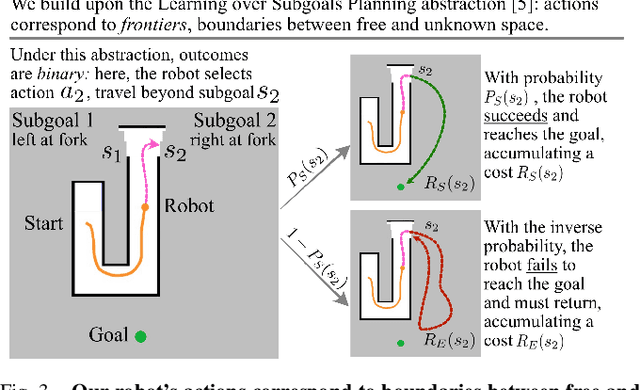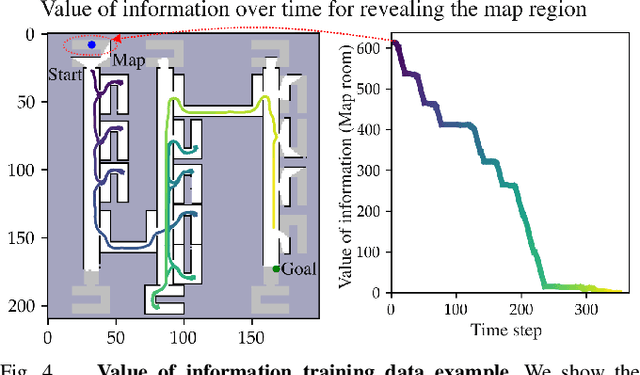Active Information Gathering for Long-Horizon Navigation Under Uncertainty by Learning the Value of Information
Paper and Code
Mar 05, 2024



We address the task of long-horizon navigation in partially mapped environments for which active gathering of information about faraway unseen space is essential for good behavior. We present a novel planning strategy that, at training time, affords tractable computation of the value of information associated with revealing potentially informative regions of unseen space, data used to train a graph neural network to predict the goodness of temporally-extended exploratory actions. Our learning-augmented model-based planning approach predicts the expected value of information of revealing unseen space and is capable of using these predictions to actively seek information and so improve long-horizon navigation. Across two simulated office-like environments, our planner outperforms competitive learned and non-learned baseline navigation strategies, achieving improvements of up to 63.76% and 36.68%, demonstrating its capacity to actively seek performance-critical information.
 Add to Chrome
Add to Chrome Add to Firefox
Add to Firefox Add to Edge
Add to Edge